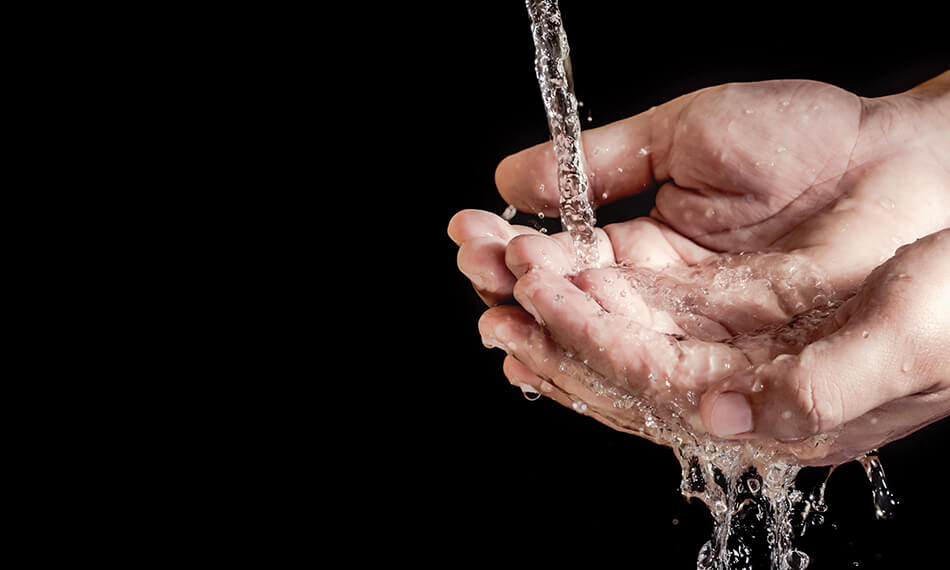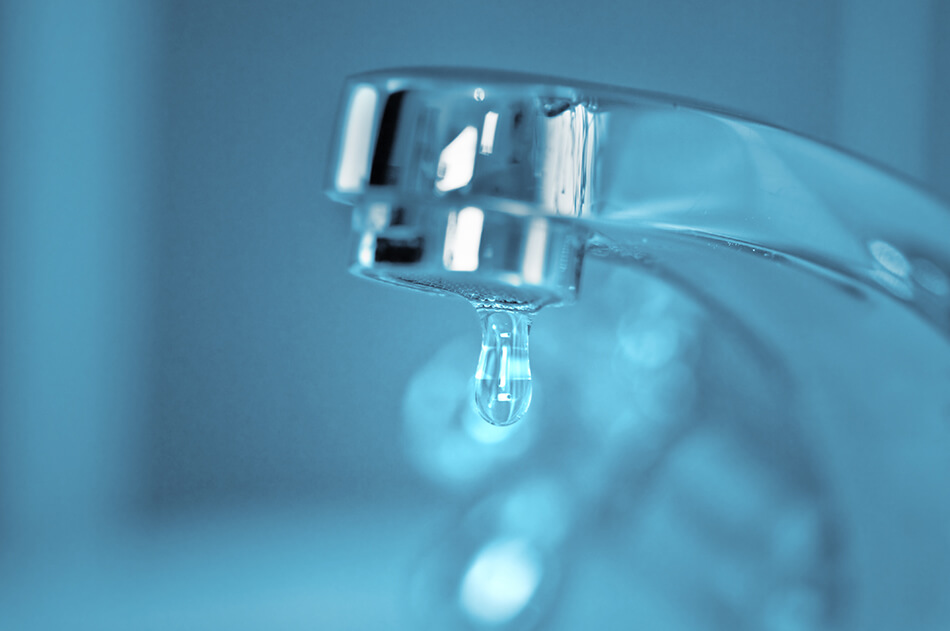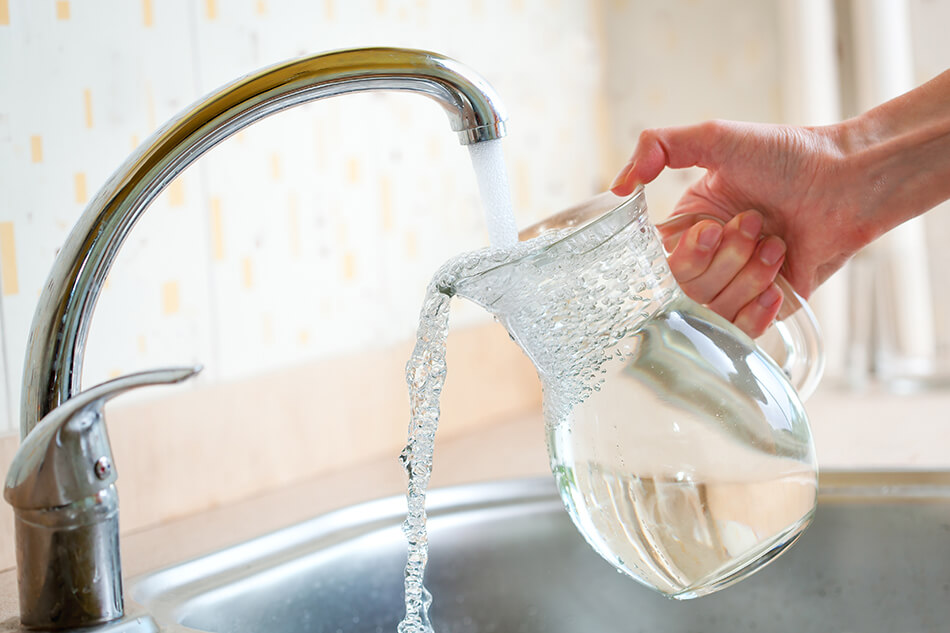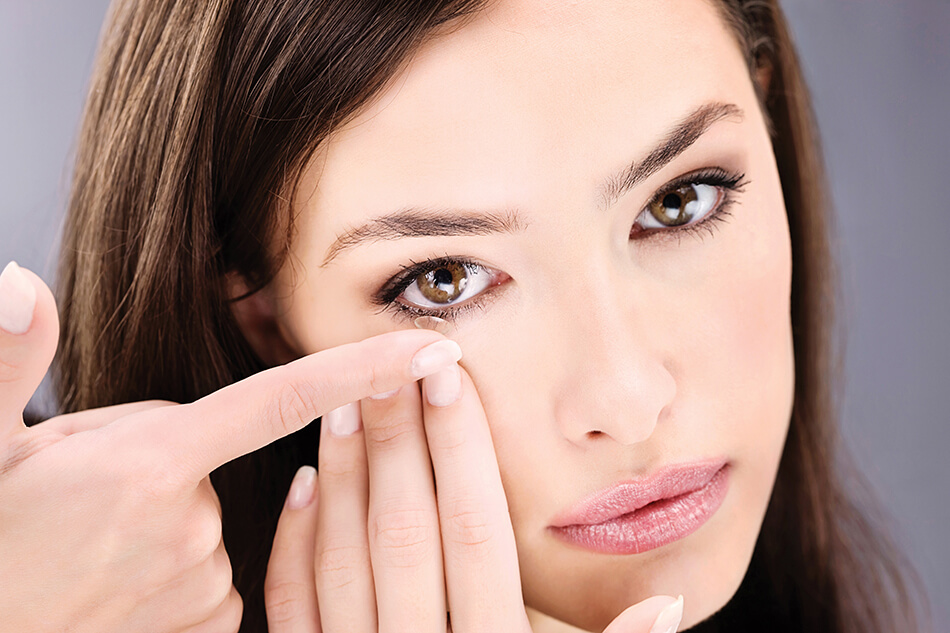Creepy-Crawlies Love Water! You Can Help Protect Your Eyes with Daily Contact Lenses

Up to 60 per cent of the human body is composed of water. It’s no surprise we love to submerge ourselves in it. In the summertime, the pool and ocean invite us to take a dip. In the winter the bathtub and hot tub beckon. But did you know water can harm your eyes? And we’re not talking about the piranha-infested waters of South America!
Tap water has its own share of creepy-crawlies, viruses and chemicals. Read on to find out what's in your water and how to protect your eyes by switching to daily contact lenses.

What’s Hiding in Our Tap Water?
This is the bit where we all get a little freaked out. Tap water can contain many biological organisms, aka creepy-crawlies. When harmful bacteria gets into the water supply, it can cause short-term gastrointestinal disorders. Coliform bacteria can get into the water supply via a sewage leak, animal waste spill or decaying animal. When ingested, this bacteria can cause vomiting, diarrhea and abdominal cramps. Gross. We’re not done yet, though.
Cryptosporidium, a microscopic waterborne parasite, can also get into tap water. Cryptosporidium causes the parasitic infection, cryptosporidiosis, which affects the small intestine. Other terrible bacterial diseases are water-borne. Cholera, typhoid fever, and dysentery can spread through contaminated drinking water. The viruses Hepatitis A, poliovirus, Norwalk, adenovirus, and retrovirus can also spread via contaminated water.
Now onto the next major contaminant in water: chemicals. A 2009 EPA study, covered by Scientific American, found 202 unregulated chemicals in drinking water across 45 states. Pollutants come from sources such as agriculture, sewage treatment plants and urban runoff. EPA’s senior vice president for research said, "It is not uncommon for people to drink tap water laced with 20 or 30 chemical contaminants.” Yikes! All those chemicals, including dangerous toxins like lead, mercury, PCBs, and arsenic, are bad for your gut.
Yet few people consider how damaging these toxins are to their eyes. The health of your eye depends on maintaining a delicate pH moisture balance. Toxins in drinking water can cause extreme irritation which, if left untreated, may lead to eye disease.

Time for some good news. It is the responsibility of the state and federal government to provide safe water. The system is not perfect. For example, Flint, Michigan has been without safe drinking water for years. However, the US Environmental Protection Agency does have regulations and monitoring schedules to control the levels of drinking water contaminants. If your faith in the quality of your local drinking water is thin, consider installing a water filter in your home; that way, you can be sure your tap water is low on lead.
Tap Water Is Bad for Your Eyes
That same advice does not apply to getting water in your eyes, though. Experts advise you should not wash your eyes out with tap water unless it is an emergency. If you accidentally spray some nasty chemical in your eyes and all you can access is tap water then, by all means, rinse your eyes out. But be aware that there is less salt in tap water than in normal human tears. The saline level of your tears helps to keep your eyes healthy. Washing your eyes with water irritates the ocular surface and can damage the lens cells of your eye.
Splashing tap water in your eye puts you at risk of developing a severe eye infection, due to the contaminants that we’ve already covered.
Bacteria and viruses found in water can cause conjunctivitis. Often referred to as “red eye” or “pink eye”, conjunctivitis is more serious than the name suggests. Conjunctivitis is an inflammation of the tissue that covers the white part of the eye. So long as that inflammation is treated promptly, it’s not a problem. But if you put it off and the inflammation gets worse, you could put your vision at risk.
So how can you protect your eyes from the nasties lurking in ordinary tap water?
Step One: Eyewash
Every home should be in possession of a sterile eye wash. Most drug stores sell bottles of eyewash, or eye irrigation solution. Eyewashes are formulated to clean the ocular surface without irritating the delicate balance of the eye. The next time you splash your eye with a cleaning solution or accidentally stab yourself with a mascara wand (we’ve all been there, ouch!) reach for the sterile eye wash. Eyewash is even effective in flushing out some contaminants found in tap water, including chlorine. For simple tips to avoid getting water in your eyes in the first place, read on.

Step Two: Protective Eyewear
Always, always, always wear protective eyewear. Around 300,000 workers visit the emergency room each year for an eye injury related to an accident at work - and it’s not just steelworkers. Workers in healthcare and retail trades make up a large percentage of that total. The advice is simple. If there's any chance your eyes could be damaged, wear protective eyewear.
The same applies to adventure sports and skiing. Anytime you go mountain biking or motorbiking, you should wear special reinforced glasses. And when you ski or snowboard you should wear ski goggles, not only to protect your eyes from snow but to shield them from harmful UV rays. Sport glasses and ski goggles are not prescription so if you’re a glasses wearer you’ll want to try contact lenses. Before you can buy lenses you’ll need to have an eye exam and get an up-to-date prescription.
Step Three: Disposable Contact Lenses

If you’re one of the 177 million people in the US who use some kind of vision correction, there’s an easy way to protect your eyes from water. Make the switch from glasses or weekly/monthly lenses to disposable contact lenses.
Our eyes are remarkable, and if contaminated water gets into them they react. Eyes create extra saline tears whenever they sense a foreign body or toxin, forcing us to blink it out. However, if you’re a contact lens wearer, flushing away the problem is difficult. Your contact lens acts like a barrier, trapping irritants between the lens and the eye. That’s why it can be risky for your eye health to use overnight lenses. Instead, wear disposable daily contact lenses. Any time you get your eyes wet - say in the swimming pool, hot tub or shower - you’re able to remove that lens and put in a fresh one. Every new lens comes in its own sterile solution, so you know it’s safe.
So now you know exactly what’s in your water, but you also know what you can do to keep your eyes safe from it!